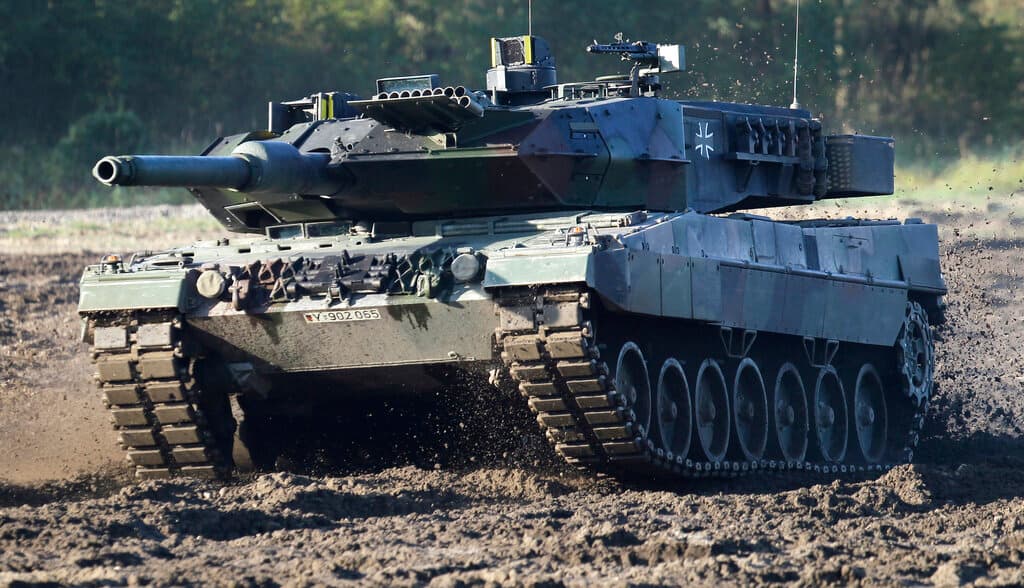EU Proving a Reluctant U.S. Ally as Beijing, Moscow, and Tehran Tighten Ties
As global blocs are formed, America needs to tighten its alliances. When it comes to Europe, it would do better to ally with like-minded countries than rely on Old Europe and its untrustworthy and disunited ‘union.’

As Communist China, President Putin’s Russia, and the Islamic Republic of Iran tighten alliances, the German-led European Union is emerging as the weakest link on America’s side of Cold War II.
The EU on Monday failed to list one of the world’s foremost terrorist organizations, the Islamic Revolutionary Guards Corps, as a terrorist organization; Germany is dithering over Poland’s request to supply advanced tanks to Ukraine; and the continent’s green policies are increasing its dependency on Beijing.
Flashes of cross-Atlantic coordination do appear here and there. President Biden, to his credit, has concocted a hesitant approach to disputes that appeal to European sensibilities, which at least for now prevents the EU from taking an anti-American stance, preserving the semblance of a united front.
In one sign of coordination between Western states, the treasury and state departments united Monday with Britain and the EU in announcing a new set of sanctions, “in connection with human rights abuses,” against 10 members of the Iranian regime. Yet, such sanctions do little to hurt the regime, as the sanctioned individuals rarely travel outside of the country or hold European bank accounts.
While Washington designated the IRGC as a terrorist organization in 2018 despite warnings of catastrophic consequences, Brussels steadfastly refuses to do so. “It is something that cannot be decided without a court decision first,” the EU’s Tehran-friendly foreign policy tsar, Josep Borrell, told reporters Monday. “You cannot say, ‘I consider you a terrorist because I don’t like you.’”
A terrorist designation would deprive the IRGC of access to European banks and otherwise hurt its ability to finance activities around the world. No wonder the Tehran foreign minister, Hossein Amir-Abdollahian, warned against it Sunday, threatening “reciprocal” measures, such as listing “elements of European countries’ armies” on Iran’s own terrorist list.
Last week, the European Parliament urged Brussels to place the IRGC on the EU terror list. On Monday one of the parliamentarians, Germany’s Hanna Neumann, tweeted, “I understand everyone’s frustration with the Terror List. So I assure you, we at the European Parliament will continue our efforts to find ways to put #IRGC on the EU terror list.”
Caving to Tehran’s empty threats, the desire to renew the 2015 nuclear deal, fear of losing future business opportunities in Iran, and hopeless internal divisions have been a staple of the European Union’s policy toward the Islamic Republic for years. They also guide Brussels’ approach to the war in Europe’s own backyard.
Poland is vowing to send German-made Leopard 2 tanks to Ukraine even as Berlin is refusing to approve the re-export or, better yet, send its own tanks to Ukraine. Chancellor Scholz is conditioning the deal on America’s sending its M1 Abrams tanks.
Kyiv insists the tanks are needed for a spring offensive in the east of the country, which could determine victory in the war and perhaps hasten its conclusion. Poland is trying to break the Washington-Berlin logjam. Even without German permission, “we would still transfer our tanks, together with others, to Ukraine,” the Polish prime minister, Mateusz Morawieck, said Monday.
While Poland and others have bet much of their economic future on the EU structure, they may want to be independent of its overly legalistic, appeasement-prone foreign policy. Poland prefers to “build at least a small coalition of countries,” Mr. Morawieck said.
As Germany, Europe’s largest economy, remains shaky over pursuing victory in Europe’s most significant hostilities since World War II, other American allies around the war are stepping up. Japan is beefing up its military to confront Communist China, and India is vying to compete with the Chinese economically.
In the Mideast, Israel on Monday launched the largest joint military exercise with America. Code-named Juniper Oak 23, the drill is designed to show Iran that Washington “is not too distracted by the war in Ukraine and the threat from China to mobilize a large military force,” a source told NBC news. Yet the military burden will fall to Israel, which is purchasing a new set of F-15-EX fighter jets to add to an F-35 package. It signals possible preparation for an attack on Iran facilities.
Beijing at the same time is defying American, European, and United Nations sanctions by buying oil from Moscow, and Tehran, which in effect underwrites their militaries. Iran is selling drones to Russia, as Moscow sells air defenses to Tehran. China and Russia use their UN Security Council veto right to shield themselves and their allies from further global sanctions.
Russia’s foreign minister, Sergei Lavrov, was in South Africa Monday, securing the support of Africa’s wealthiest country for the Kremlin’s war in Europe. Chairman Xi is sending a videotaped message of solidarity to Latin America’s leftists gathering at Buenos Aires.
As global blocs are formed, America needs to tighten its alliances. When it comes to Europe, it would do better to ally with like-minded countries than rely on Old Europe and its untrustworthy and disunited “union.”

